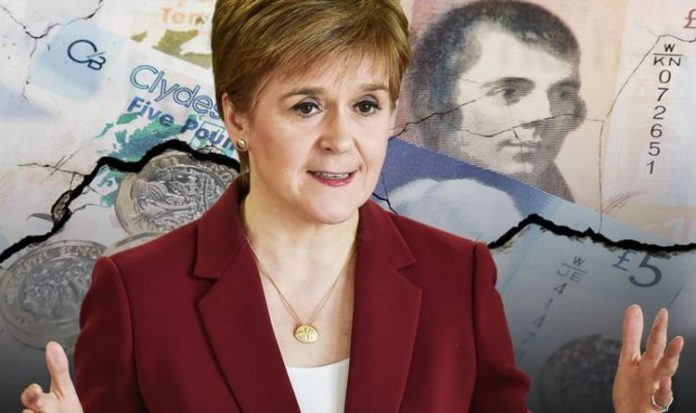Scottish First Minister Nicola Sturgeon has previously said her government will propose the timescale and question for a second referendum on Scottish independence by next spring. Ms Sturgeon claimed challenges of the coronavirus pandemic will act as an accelerant rather than as a brake on the Scottish National party (SNP)’s ambitions. The SNP leader pledged that by next spring her government would publish a draft bill for an independence referendum, which would set out “clearly and unambiguously to the people of Scotland” both the question to be asked and the timing of the vote.
The question would be subject to appropriate testing by the Electoral Commission, and the timescale would be “within the next term of Scottish Parliament”, which lasts until 2026 after elections next year, and also “taking account of the development of the COVID-19 pandemic at the time of publication”.
She added that at next May’s Holyrood elections – in which the SNP are already predicted to win a majority as support for independence continues to rise – her party will make the case for Scotland to become “an independent country, and seek a clear endorsement of Scotland’s right to choose our own future”.
Since the start of 2020, opinion polls have given “Yes” campaigners a consistent lead over their unionist rivals.
One recent survey predicted a total reversal of the 2014 referendum result — 55 percent in favour of separation, versus 45 percent against.
In an exclusive interview with Express.co.uk, though, Ronald MacDonald, research professor of macroeconomics and international finance at Glasgow University’s Adam Smith Business School, argued Ms Sturgeon’s independence bid is incredibly dangerous for Scotland.
Mr MacDonald claimed that under her economic plan, an independent Scotland would almost immediately go bankrupt.
He explained: “The underlying deficit has not changed too much since last year.
“It went up by half a percent, I think.
“That is not a sustainable deficit in itself. It is about 8.6 percent.
“So they [the SNP] have argued in the Growth Commission report that they could handle that by having higher growth if they were independent.
“But they haven’t said how they are going to get it.
“Of course, on top of that you have the coronavirus crisis, which means the deficit going forward. It will probably be somewhere in the 20 percent region or even 30 percent.
“That’s a huge deficit.”
The First Minister’s argument, the macroeconomist noted, seems to be that she can do what other governments are doing, which is to borrow heavily on financial markets at relatively low interest rates.
JUST IN: Ed Miliband admitted he forgot section of his conference speech
“That is not tenable for an independent country.
“I have argued separately it could lead to bankruptcy.
“They haven’t thought through the macroeconomic framework.”
He concluded: “It is a very complex mix and unfortunately that complex mix has not been spelt out to the electorate
“That is my concern.
“I hope if there is another referendum campaign, people will start putting these arguments to them.”







